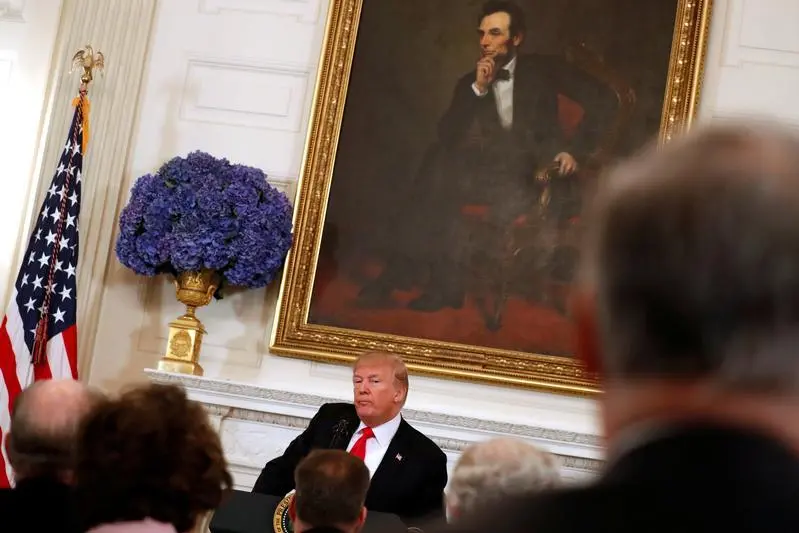PHOTO
On Thursday, Donald Trump announced tariffs on steel of 25 percent and 10 percent on aluminum. This had been some time coming. Trump and his trade representative Wilbur Ross complained about Chinese steel and aluminum overcapacity and low prices last week. Trump also makes good on a campaign promise to bring jobs in coal, steel and other 19th-century industries back to the US.
For the rest of the world this was a shot across the bow. Not only is the president potentially risking trade wars, which he claimed in a tweet were “good for the United States,” these measures are also likely to trigger inflation and severely disrupt supply chains in many industries, especially the automotive and aeronautical sector. The Dow Jones reacted quickly, falling by 420 points. Stock exchanges around the world were also down. The oil price fell, too. Trade is good for oil as goods need to be first produced and then shipped, all requiring energy.
President Trump’s scattergun approach leaves much to be desired. For one, the largest exporter of steel to the US is not China, which incurred his wrath, but Canada, followed by Brazil, South Korea, Mexico and selective European steel and aluminum producers. With this action he potentially undermines a successful renegotiation of the North American Free Trade Agreement (NAFTA). The Canadians and Mexicans are furious and will not be cooperative. He also puts US jobs at risk. As many as 6 million jobs are tied to NAFTA and its intricate supply chains, which were built over the past 25-plus years.
Most importantly, these are not targeted actions, but a scattergun approach that undermines the entire global trading system. That multilateral system works only when all countries adhere to the rules. President Trump may have a point with regard to China in terms of selling goods below cost, and refusing foreign companies the same access as Chinese companies demand and enjoy abroad. But this pertains more to the investment than the trading side of the equation. He also undermines the World Trade Organization (WTO), which the US helped establish.
If any country has issues, these are best resolved either in bilateral negotiations or via the WTO dispute resolution mechanisms. In the end, unilateral scattergun measures will do little to resolve an issue and a lot to hasten retaliatory actions, which, in turn, can lead to trade wars.
This matters to us all. Since World War II global trade has helped lift billions of people out of poverty. It was not a zero-sum game but a win-win scenario, which is precisely why so many countries joined the WTO. Saudi Arabia did so in December 2005.
The big trading nations today are China, Japan, the US, Mexico, Canada and Germany among others. Growing economies in Asia have helped many industries across the globe build supply chains and find markets — not the least in the United States. Many GCC economies also rely increasingly on growth in China and Japan. Asian oil consumption is crucial to Saudi Aramco and ADNOC, for example. In light of increased petroleum exports from the US, these markets will gain ever-greater importance.
Saudi Arabia is embarking on an exciting and challenging plan to implement Vision 2030, which will depend on imports as well as exports. In other words, the GCC economies have every interest in a growing global economy to achieve their goals and dreams. They need a functioning global trading regime — just as much as Germany or Canada do.
At the beginning of the year it all looked so good, with the IMF upgrading global growth to 3.9 percent for 2018. The latest actions by the US president could throw a spanner in the works. There is one silver lining, however. So far these measures have been announced in an interview and via Twitter. The US Trade Representative has yet to come out with specifications and implementation rules. We will have to wait and hope that reality tempers the initial statements.
- Cornelia Meyer is a business consultant, macroeconomist and energy expert. Twitter: @MeyerResources
Copyright: Arab News © 2018 All rights reserved. Provided by SyndiGate Media Inc. (Syndigate.info).





















